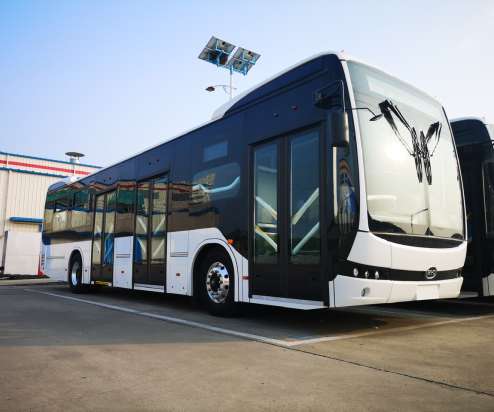Bogotá orders 379 electric buses from BYD
Green Car Congress
NOVEMBER 22, 2019
It will also be 60% cheaper to operate these buses, compared to traditional diesel-powered buses. BYD’s zero-emission transportation solutions have gained ground in Latin America, and now successfully service markets in many other countries across the region, including Ecuador, Chile, Brazil, Peru, Panama, Uruguay and Argentina.











Let's personalize your content